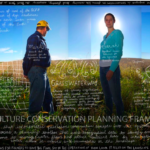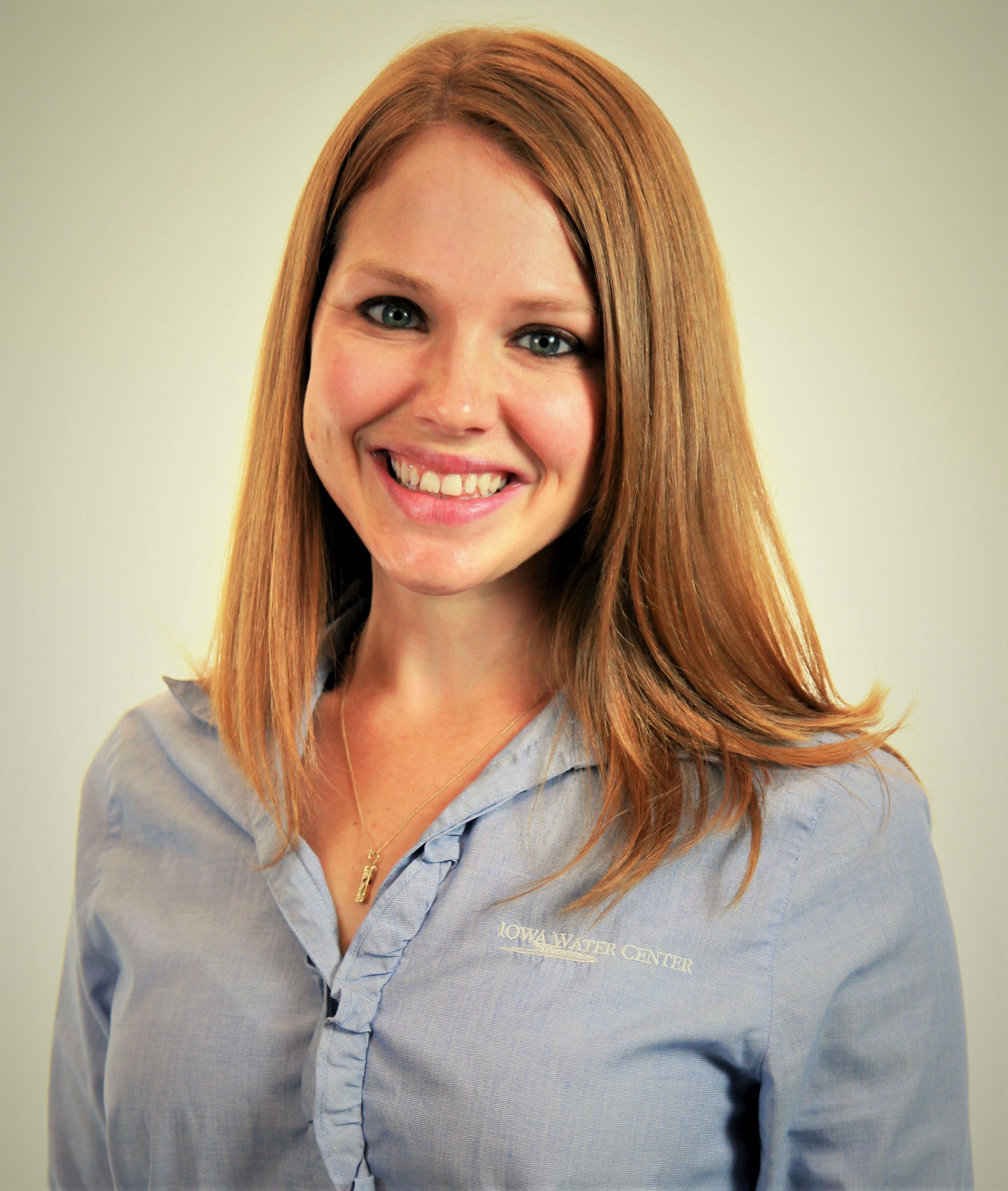Student project from the Bluestem Institute (left). Image of the Southfork Watershed Alliance sign (right).
Story submitted by Melissa Miller, Associate Director for the Iowa Water Center
In fall of 2015, I met with a group of 60 high school students at the headwaters of the South Fork of the Iowa River, right off the shoulder of Hwy 69 in North Central Iowa. It was a beautiful (but cold) fall morning, and I wasn’t sure what to expect. All I knew was that a class from Ames High School (AHS) was out to define a list of water quality terms, and they were doing so through experiences, including this on-site interview with my local farmer-led grassroots watershed group.
What I found out about this group of students was worth my shivering out in the cold while corn-loaded semis blasted by the school buses at 60 mph. These students and three teachers were part of the Bluestem Institute, an integrated capstone seminar based on project-based learning and extended inquiry frameworks. As I built a relationship over the next several months with teachers Mike Todd, Joe Brekke, and Chad Zmolek, we discovered more ways for the class and the Iowa Water Center to interact, culminating in a gallery showing of the students’ final projects at the 10th annual Iowa Water Conference.
I wasn’t the only one transfixed with the students’ high level of engagement and understanding of complex water issues. Pat Sauer, with the Iowa Stormwater Education Partnership, came to me in early summer of 2016 with a vision of packaging the Bluestem Institute and making it accessible for all schools in Iowa to implement.
Serendipitously, the Leopold Center for Sustainable Agriculture had recently received a bequest from the estate of Iowan Robert Margroff designated for youth education about the environment. With the help of the AHS teachers that created the Bluestem Institute, we submitted and were subsequently awarded three years of funding to develop the framework and pilot it in two Iowa schools.
Now nearly a year into the project, dubbed “The Watershed Project,” we have discovered that we are always learning. Davenport North High School faculty Laura McCreery and City of Davenport Public Works employee Robbin Dunn are nine weeks into implementing the project in McCreery’s classroom. Over the life of the project, we will blog about the process of designing the framework and the experiences of our implementation schools.
The immediate outcome of this project will be an educational framework for teachers to implement project-based learning in Iowa high schools that address intersections of science, government, sociology, economics, and art as they relate to decision-making regarding water and land use at local levels. We hope to inspire more than that – we hope this program inspires students and communities to take greater interest in environmental sustainability issues. We hope the students in these programs consider entering STEM fields post-graduation, armed with interdisciplinary knowledge so they can inspire new solutions. We hope to develop emerging generations of citizens and civic leaders that value and implement environmentally sustainable policies and strategies. Ultimately, we dream of engaged, resilient communities that proactively and collaboratively address soil and water conservation issues.


